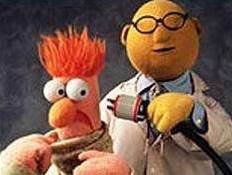
Researchers at Delft University of Technology will report their breakthrough in this week's issue of Nature.
A quantum computer will be based on the properties of quantum physics. It hinges on the fact that a quantum bit, or qubit, exists in two states at the same time.
The information from two qubits is entangled in a way that has no equivalent in the normal world.
"It is highly likely that workable quantum computers will need to be produced using existing manufacturing techniques from the chip industry," the researchers stated.
"Working on this basis, the scientists at Delft are currently studying two types of qubits, one making use of tiny superconducting rings and the other making use of 'quantum dots'.
"Now for the first time a 'controlled-NOT' calculation with two qubits has been realised with the superconducting rings. This is important because it allows any given quantum calculation to be realised."
The results were achieved by PhD student Jelle Plantenberg in the team led by Kees Harmans and Hans Mooij.


_(28).jpg&h=140&w=231&c=1&s=0)







 iTnews Executive Retreat - Security Leaders Edition
iTnews Executive Retreat - Security Leaders Edition
 iTnews Cloud Covered Breakfast Summit
iTnews Cloud Covered Breakfast Summit
 Melbourne Cloud & Datacenter Convention 2026
Melbourne Cloud & Datacenter Convention 2026
 The 2026 iAwards
The 2026 iAwards












_(1).jpg&h=140&w=231&c=1&s=0)



